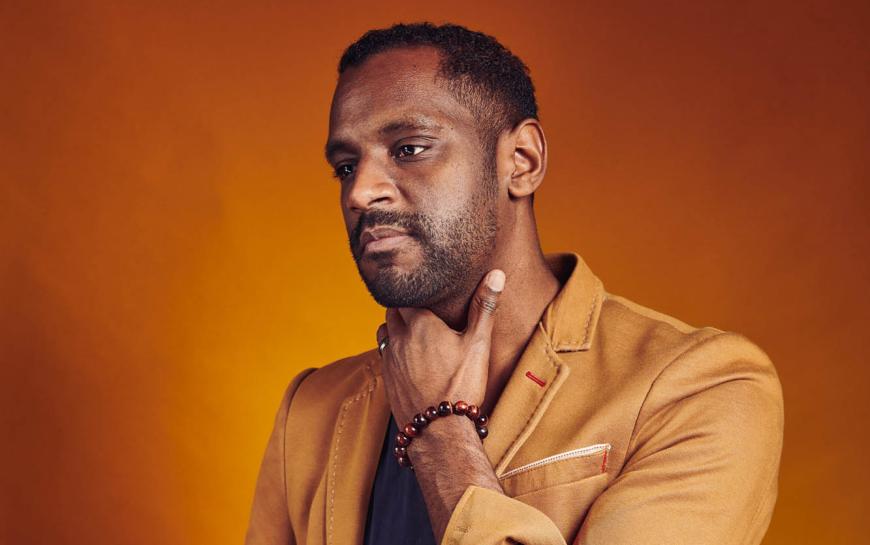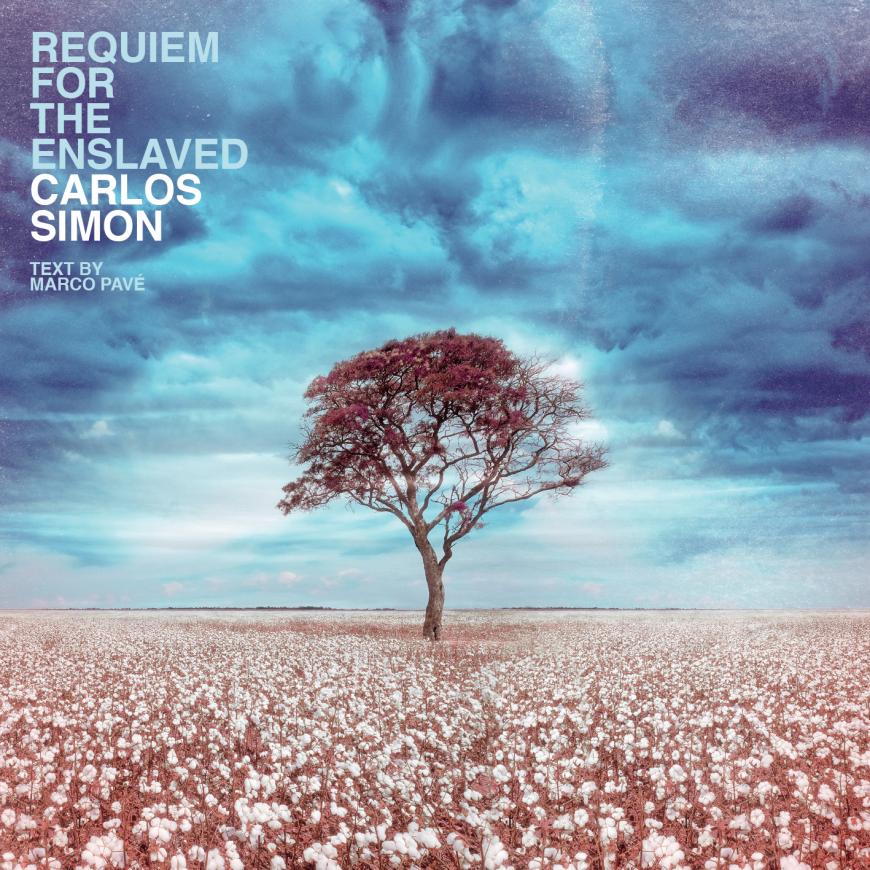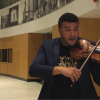
Adapting the Catholic Mass and Requiem to pressing contemporary issues has become increasingly common at a time of intensifying contradiction, inequity, and ecological destruction. To David Chesky’s The Excommunication Mass (about the LGBTQ disenfranchised), Jóhann Jóhannsson’s electroacoustic Drone Mass (inspired, in part, by spy drones in our skies), Sarah Kirkland Snider’s Mass for the Endangered (a prayer for endangered species), and several AIDS-inspired Masses from the last century, you can now add Carlos Simon’s vital Requiem for the Enslaved (Decca Classics). Commissioned by Georgetown University with support from the president’s office and the university committee for slavery, memory, and reconciliation, Simon’s Requiem, composed in 2020, combines classical, jazz, spiritual, and blues instrumentals, with animated recitation by rapper and spoken-word artist Marco Pavé on nine of its 17 sections.
“What does it mean if your body was never free?” asks Pavé. “What happens to the soul of the slave if the shackles release?” Those words, written in response to the discovery that Georgetown University and other institutions in our nation’s capital were literally constructed on soil strewn with the remains of enslaved and free Africans (the university, Catholic in its origins, actually pulled itself out of bankruptcy by purchasing 272 slaves and, in 1838, selling them to a Louisiana plantation for $115,000), provide context for Simon’s composition.

Simon, an assistant professor at Georgetown, visited the Louisiana plantation and conducted significant historical research before embarking on the Requiem. Drawing on his classical training and his heritage as an Atlanta native raised in the Pentecostal Christian tradition, he opens the Requiem with an invocation and proceeds through a kyrie and gloria before concluding with “in paradisum” (spelled “paradisium” in the recording booklet and promo material). Beyond those standard names, all of which are written in lowercase as is the contemporary custom, virtually nothing in his composition resembles traditional forms.
Requiem for the Enslaved begins with Pavé’s clearly enunciated recitation of the names of Georgetown’s enslaved: “Issac, 65 years old / Charles, Issac’s son, ran away … Ruthy, Nelly’s daughter, 6 years old.” In the next section, “lord have mercy (let us go),” he declares, “This is not a world created by God / This is a country created by mobs / Kill.” Between and around moving instrumental interludes and sections, we hear the words of Harriet Tubman and Frederick Douglass.
But it is the original words and music that propel us into the heart of the matter. “A conflict between people who would rather kill millions of humans than see the humanity of the enslaved,” Pavé says. “A conflict for justice or a conflict that left … just us.” Such words set the stage for music that is sometimes animated, violent, filled with danger, and cacophonous but often sweet, soothing, and lovely. There’s at least as much prayer and consolation here as there is outrage. It’s an effective mix.
Some of Simon’s most resonant passages quote from familiar spirituals that include “Swing Low, Sweet Chariot” and the funeral processional “When the Saints Go Marching In.” This is especially apparent in the three “bonus” instrumental sections: “light everlasting” for solo piano (played by Simon), “in paradisium,” and “we all found heaven.” In the last two, MK Zulu’s trumpet eloquently adds to Simon’s keyboard. Elsewhere, Hub New Music’s Michael Avitabile (flute/piccolo/alto flute), Nicholas Brown (clarinet/bass clarinet), Alyssa Wang (violin), and Jesse Christeson (cello) provide a variation on the time-honored string quartet, with samples of the bell at the Whitney Plantation in Maringouin, Louisiana, injecting chilling counterpoint.
Simon’s profile is on the rise, with many major awards and prominent commissions in recent years. Two upcoming projects include brea(d)th for the Minnesota Orchestra, in memory of George Floyd, and Let America Be America Again (text by Langston Hughes) for a PBS documentary about the Gabriela Lena Frank Academy of Music. This composer and his music must be heard, not only because he speaks to important issues but because his music is deeply evocative.




